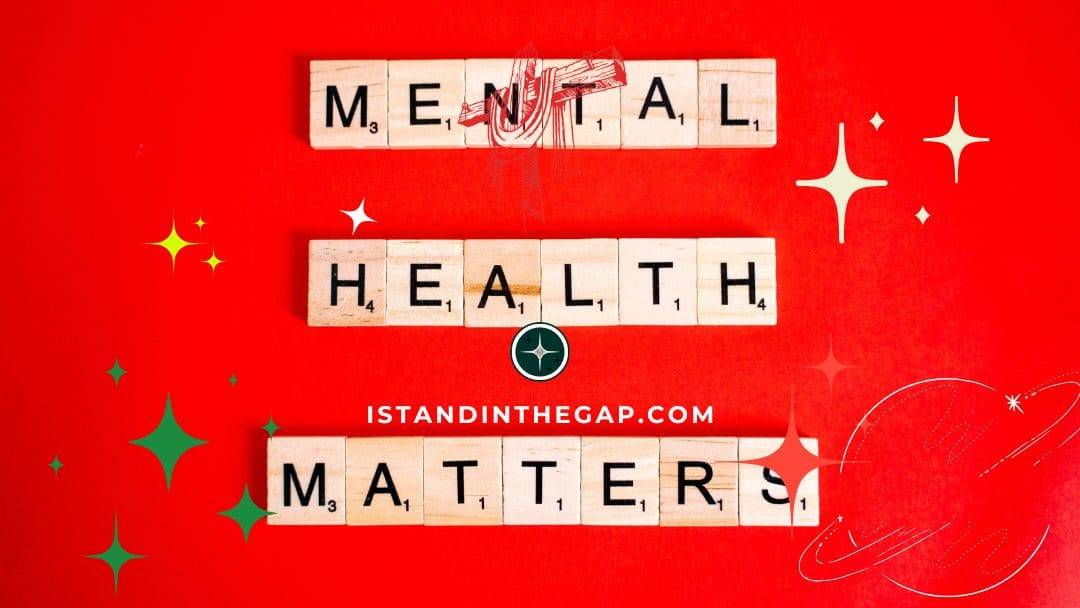Welcome to a crucial discussion on “Breaking Down Mental Health Stigma in Faith Communities.” In a world where faith and mental health are both significant aspects of our lives, it’s vital to address the coexistence of these two and tackle head-on the stigma surrounding mental health within our faith communities.
Key Takeaways to Breaking Down Mental Health Stigma in Faith Communities
- Mental health stigma exists in faith communities: Stigma around mental health is not unique to any specific group and can be found in various faith communities.
- Open dialogue, compassion, and education are crucial in combating stigma: Encouraging conversations, practicing empathy, and educating ourselves about mental health issues are powerful tools for breaking down stigma.
- Faith communities should strive to create a culture of acceptance and support: Inclusive and compassionate faith communities help individuals facing mental health challenges feel valued and understood in their faith journey.
Mental health stigma in faith communities is a challenge that extends its reach into various corners of society, and faith communities are no exception. In many instances, misconceptions prevail, suggesting that grappling with mental health issues somehow signifies spiritual weakness or a lack of faith. This misconception is far from the truth.
Our faith and mental health should indeed coexist harmoniously. They are not opposing forces but rather intertwined aspects of our well-being. Just as our faith can provide comfort, hope, and support during difficult times, it’s essential to recognize that mental health challenges are not indicative of one’s faith or spiritual standing.
In this blog post, we embark on a journey to explore the profound significance of addressing mental health stigma within our faith communities. We’ll delve into the power of open dialogue, the influential role of our religious leaders, the importance of creating supportive environments, and the need for education and compassion.
Together, we will seek to create faith communities where no one feels isolated in their mental health struggles, where understanding and acceptance prevail, and where our faith shines as a beacon of hope, inclusivity, and compassion. Join us as we explore the pivotal role faith communities can play in breaking down mental health stigma.
Recognizing the Stigma: A Biblical Perspective
When it comes to addressing any issue under the sun, the first step to take is acknowledgment – and mental health stigma within faith communities is no exception. It’s essential to recognize that this stigma does exist, sometimes subtly, but it’s there. It’s not unique to any one group or faith; it can be found within various religious communities.
One of the key aspects of this stigma is the misconception that mental health struggles equate to spiritual weakness or a lack of faith. This misunderstanding can lead to feelings of shame and isolation for individuals facing mental health challenges within their faith communities. It’s a harmful and inaccurate belief that needs to be debunked.
Let’s be clear: mental health challenges are not indicative of one’s spiritual strength or faithfulness. Just as physical ailments don’t reflect one’s spiritual standing, the same holds true for mental health. We are all human, and we all face struggles, whether they are physical, mental, or emotional.
The Bible itself reminds us of the universality of human struggles and the need for compassion and understanding. In Romans 3:23, it is written:
For all have sinned and fallen short of the glory of God.
This verse emphasizes that every person, without exception, faces their own shortcomings and challenges. It’s a reminder that no one is immune to difficulties, including mental health challenges.
Our faith communities should be spaces where individuals find support, understanding, and empathy. Recognizing the existence of mental health stigma is the first step in dismantling it. It’s about acknowledging that these misconceptions exist and committing to change.
In the sections that follow, we will delve into how we can actively combat this stigma within our faith communities. We’ll explore the power of open dialogue, the influential role of our religious leaders, and the importance of creating supportive environments where everyone feels accepted, regardless of their mental health challenges.
Together, we can make a difference and ensure that our faith and mental health truly coexist harmoniously.
The Power of Open Discussions: A Biblical Foundation
Imagine our faith community as a garden. In this garden, understanding and compassion serve as the nurturing sunlight and life-giving water. Just as a garden thrives under these conditions, so too can our faith communities flourish when we embrace the power of open discussions about mental health.
The Bible provides us with guidance on the importance of communication, understanding, and support within a community. In Galatians 6:2, it states:
Bear one another’s burdens, and so fulfill the law of Christ.
This verse reminds us of the duty we have as believers to support one another through life’s challenges. Mental health challenges are no exception; they are burdens that can be lightened through open dialogue and shared empathy.
The beauty of open dialogue lies in its ability to create a safe space. It’s a space where individuals can share their mental health challenges without fear of judgment or condemnation. Much like a garden where every plant, regardless of its state, has room to grow, open discussions allow people to be vulnerable and seek support.
By fostering an environment where mental health discussions are welcomed and encouraged, we plant the seeds of empathy and acceptance. We send a message that no one should carry the weight of their struggles alone. In such a garden, individuals find solace in knowing that their faith community stands with them, ready to offer understanding and compassion.
Open dialogue is a powerful tool in combating mental health stigma within faith communities. It challenges the misconceptions and stereotypes that have persisted for far too long. It reminds us that mental health challenges are not a sign of weak faith but rather a part of the human experience.
In the upcoming sections, we’ll explore how our religious leaders can play a crucial role in fostering these conversations and how we, as members of faith communities, can actively support one another.
Together, we will continue to nurture this garden of understanding and compassion, allowing our faith and mental health to coexist harmoniously.
Religious Leaders as Advocates: A Biblical Perspective
In faith communities, religious leaders hold a unique position of influence. Their words and actions reverberate within the hearts and minds of believers. When it comes to breaking down mental health stigma in faith communities, these leaders can play a profound role.
The Bible emphasizes the significance of leadership and its impact on the congregation. In 1 Timothy 4:12, it states:
Let no one despise your youth, but be an example to the believers in word, in conduct, in love, in spirit, in faith, in purity.
This verse highlights the importance of setting a positive example for the congregation, which includes addressing important issues such as mental health stigma.
Religious leaders have a unique platform to address and combat mental health stigma. When they openly discuss mental health, it sends a powerful message to the congregation. It reassures believers that seeking help for mental health challenges is not only acceptable but also a part of seeking wholeness in their faith journey.
By incorporating discussions about mental health into sermons, teachings, and pastoral care, religious leaders can foster an environment of understanding and support. They can share resources, stories of hope, and practical guidance for those who may be struggling. In doing so, they create a safe haven within faith communities where individuals feel acknowledged, accepted, and encouraged.
It’s crucial for religious leaders to recognize that their influence extends beyond the spiritual realm; it encompasses the emotional and mental well-being of their congregation. When they take a stand against mental health stigma, they contribute to the harmony of faith and mental health, ultimately strengthening the bonds of their community.
In the following sections, we will delve deeper into the ways faith communities can actively support their members facing mental health challenges. We will explore the importance of fostering supportive environments and nurturing compassion, guided by the principles of our faith.
Together, we can continue to break down the walls of stigma and ensure that faith and mental health coexist harmoniously.
Supportive Faith Communities: Together We Are Stronger
Within the embrace of a faith community, each member should find unwavering support and encouragement. This support extends beyond the spiritual realm and includes understanding and empathy for those facing mental health challenges.
The Bible reminds us in Galatians 6:2
Bear one another’s burdens, and so fulfill the law of Christ.
This scriptural passage encapsulates the essence of a supportive faith community.
Supportive faith communities are like sturdy oaks, offering shelter and strength to their members. They recognize that mental health challenges can affect anyone, irrespective of their faithfulness or spiritual strength. In fact, it is precisely during such times that faith communities have an opportunity to exemplify the love and compassion at the core of their beliefs.
When individuals within a faith community experience mental health struggles, it is the collective responsibility of the community to come alongside them. This support can manifest in various ways, from offering a listening ear and a shoulder to lean on to assisting with practical needs. It is through these acts of kindness and understanding that the stigma surrounding mental health slowly begins to erode.
Educating Ourselves: The Power of Knowledge
One of the most potent tools in the battle against mental health stigma is knowledge. Understanding mental health conditions, their impact, and the available resources can equip us to provide meaningful support to our fellow believers.
Proverbs 18:15 (NKJV) reminds us,
The heart of the prudent acquires knowledge, and the ear of the wise seeks knowledge.
This biblical wisdom underscores the importance of seeking knowledge, particularly when it comes to something as vital as mental health.
In today’s digital age, a wealth of resources is readily available to educate ourselves about mental health. Books, online courses, and reputable websites can provide insights into various mental health conditions, treatment options, and strategies for offering support. By taking the initiative to educate ourselves, we not only break down the walls of stigma but also empower ourselves to be compassionate companions on the journey to recovery.
Understanding mental health is not merely an option; it is a responsibility we bear as members of a faith community. It is an expression of love and compassion, embodying the teachings of our faith. In the upcoming sections, we will delve into the importance of embracing compassion and fostering a culture of acceptance within our faith communities.
Together, we can continue to nurture the harmony between faith and mental health, creating spaces where everyone feels valued and supported.
Embracing Compassion: The Heart of Faith
In the rich tapestry of faith, compassion forms a central thread, weaving together the teachings of love, kindness, and empathy. To truly understand the role of compassion in faith communities, we need only turn to the life and teachings of Jesus Christ.
The Bible is replete with instances where Jesus exhibited boundless compassion. In Matthew 14:14 (NKJV), it is written:
And when Jesus went out He saw a great multitude, and He was moved with compassion for them and healed their sick.
Here, we witness the profound power of compassion in action. Jesus didn’t turn away those who sought His help; instead, He embraced them with love and healing.
Compassion is not a mere sentiment but a transformative force. It has the capacity to heal wounds, mend broken spirits, and dismantle the barriers of stigma. In the context of mental health, extending compassion means understanding that those who grapple with such challenges are not defined by their conditions. They are individuals deserving of love, acceptance, and support.
When we, as members of faith communities, embrace compassion, we walk in the footsteps of our spiritual leader, Jesus. We become instruments of healing, offering solace to those who may be burdened by the weight of stigma. Compassion opens the doors to honest conversations, fostering an environment where individuals can share their struggles without fear of judgment.
In the upcoming section, we will explore the significance of fostering a culture of acceptance within our faith communities. Just as Jesus showed compassion to the afflicted, we too can extend kindness and empathy, creating spaces where faith and mental health coexist harmoniously, and where healing begins.
Fostering a Culture of Acceptance: Imperfections and Faith’s Journey
Imagine a faith community where acceptance is the cornerstone, where individuals are not just welcomed but celebrated with all their imperfections. It’s a vision rooted in the very essence of faith, one that recognizes that our journeys are marked by trials and triumphs, weaknesses and strengths, and moments of doubt and unwavering faith.
In Romans 3:23 (NKJV), it is written,
For all have sinned and fallen short of the glory of God.
This verse reminds us that imperfection is a shared human experience. No one is exempt from it, and it’s not something to be ashamed of. Rather, it’s an integral part of our faith journey.
In the context of mental health, this acceptance becomes even more vital. Those facing mental health challenges often grapple with feelings of inadequacy or shame. However, a faith community that embraces imperfections recognizes that mental health struggles are just another facet of the human experience.
Acceptance doesn’t mean ignoring or downplaying these struggles but acknowledging them with compassion and empathy. It means creating an environment where individuals can come forward with their challenges, knowing they won’t be judged or stigmatized. In such an atmosphere, the healing power of faith can work wonders.
Faith itself is a journey marked by imperfections. It’s about trusting in the unseen, finding hope in adversity, and believing in the transformative power of love and compassion. In accepting our imperfections, we strengthen our faith, for it’s through our weaknesses that we discover the depths of God’s grace.
In the final section, we will summarize the key takeaways from this discussion. We’ll emphasize the significance of integrating faith and mental health, creating faith communities where everyone feels valued and understood, and breaking down the barriers of stigma. Together, we can make our faith communities sanctuaries of acceptance and healing.
Conclusion: Breaking Down Walls, Building Stronger Faith Communities
In this journey to break down mental health stigma within our faith communities, we’ve explored the essential steps needed to create a culture of acceptance, understanding, and compassion. We’ve recognized the existence of stigma, celebrated the power of open dialogue, acknowledged the influential role of religious leaders, understood the value of education, embraced compassion, and envisioned faith communities that embrace imperfections.
As we conclude, let’s revisit the key takeaways that can guide us in our mission to build stronger, more inclusive faith communities:
1. Acknowledge the Stigma: The first step in combating mental health stigma is recognizing that it exists within faith communities. This acknowledgment allows us to address the issue head-on.
2. Open Dialogue is Powerful: Creating a safe space for open discussions about mental health is crucial. Just as a garden thrives with sunlight and water, our faith communities flourish when nurtured by understanding and compassion.
3. Religious Leaders Are Advocates: Our religious leaders hold a unique position of influence. When they openly discuss mental health, it reassures believers that seeking help is not only acceptable but encouraged.
4. Education is Key: Knowledge is power. By educating ourselves about mental health, we become better equipped to provide meaningful support to those in need.
5. Compassion Is Fundamental: Compassion lies at the core of our faith. Just as Jesus showed compassion to those in need, we can extend kindness and empathy to those facing mental health challenges.
6. Embrace Imperfections: Faith is a journey marked by imperfections. Accepting that imperfection is part of the human experience strengthens our faith and fosters a culture of acceptance.
In the spirit of unity and healing, let’s encourage our faith communities to integrate mental health awareness, compassion, and acceptance into their core values. By breaking down the walls of stigma, we can build stronger, more resilient communities where every individual feels valued and understood, regardless of the mental health challenges they may face.
As we strive to embody the love and compassion central to our beliefs, we can create faith communities that serve as beacons of hope, support, and healing for all. Together, we can make a profound difference in the lives of believers and society at large, ensuring that faith and mental health coexist harmoniously, just as they should.
Frequently Asked Questions (FAQs) to break down mental health stigma in faith communities
Why is it important to address mental health stigma in faith communities?
Addressing mental health stigma in faith communities is essential because it promotes a culture of acceptance, understanding, and compassion. It ensures that individuals facing mental health challenges feel supported and valued within their faith communities.
How can open dialogue about mental health benefit our faith communities?
Open dialogue creates a safe space where individuals can share their mental health struggles without fear of judgment. It fosters empathy, breaks down misconceptions, and strengthens the bonds of support within the community.
What role do religious leaders play in combating stigma?
Religious leaders have a significant influence in faith communities. When they openly discuss mental health, it reassures believers that seeking help is not contrary to their faith and encourages others to do the same.
How can I educate myself about mental health issues within my faith community?
You can educate yourself by attending mental health workshops, reading books and articles, and engaging with mental health professionals. Many organizations offer resources specifically tailored to faith-based mental health education.
How does compassion contribute to breaking down mental health stigma?
Compassion is fundamental in reducing stigma because it emphasizes empathy and kindness. By showing compassion, we create a culture of understanding and support, where individuals feel safe to share their mental health challenges without fear of judgment or discrimination.

















